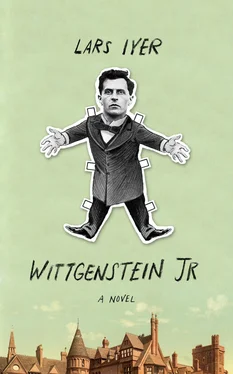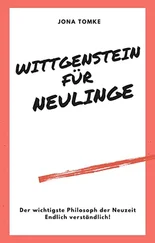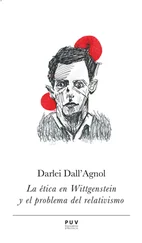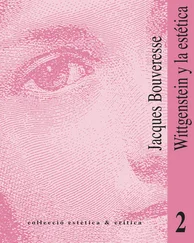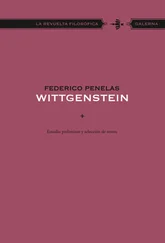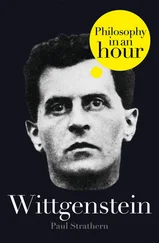He wants to be handed over to the authorities. He wants to be a case to be dealt with .
The river.
Once, there were disputes at Cambridge, he says. Once, there were enmities between dons. This one wouldn’t speak to that one; this one would leave the room when that one entered; this one would denounce the theories of that one in his lectures, and have his theories denounced in his turn.
Once, there were schools of thought in continual dispute. Once, there were debates about methodology. About legitimacy. About the very notion of philosophy. Once, there were old rivalries between Cambridge colleges, and between Cambridge and Oxford, and between Cambridge and Oxford and the rest of the world.
But it’s all smiles now, he says.
They think they are kind. But they are not kind. They think they are right. But they are not right. They think that theirs is the only world. But theirs is not the only world. They think their world is the best of all possible worlds. But theirs is not the best of all possible worlds …
The enemy does not understand that it is the enemy, that is the problem, he says. The enemy does not understand that it could be the enemy. The enemy does not grasp its own invidiousness. Its own horror . It is the good conscience of the enemy that makes it the enemy, he says. Its smugness. Its Who me? innocence.
Riverside Place. Overblown, glitzy.
He has the sense that he’s on trial, he says. That he’s waiting for a sentence to be handed down. For a judgement. For things to be decided. Only nothing is decided. And no judgement is handed down. That is his punishment.
His torture is the very absence of torture, he says. His punishment, the very absence of punishment. Which means that no one recognises his pain. That no one can understand his pain.
They would not even call his pain pain , he says. They would not allow his suffering to be suffering . The pain of pain; the suffering of suffering: he is denied even them.
In Cambridge, his path would be the right path even if it were the wrong path , he says. He would be in the right even if he were wrong , and perhaps especially if he were wrong.
St Bartholomew’s Court. Toytown.
How he would have loved to have made a speech! he says. A Christmas party lecture. A yuletide monologue.
We must revive the notion of sin , he would have said. Of shame . Of guilt . We must revive the need for humiliation and mortification .
We must declare war on ourselves , he would have said. We must be fanatics. Fundamentalists .
Ruthlessness , that is what is demanded of us, he would have said. Cruelty . And we must be cruel to ourselves first of all. We must be ruthless with ourselves.
It is too late to temper our views, he would have said. Too late to compromise.
They are thought-investors , he would have told them. Thought-speculators. Hedge-fund-thinkers .
They belong to Cambridge, he would have told them. They deserve Cambridge.
They are bollards — human bollards , he would have told them. The intellectual equivalents of suburban cul-de-sacs and out-of-town retail parks.
But he knows they would only have smiled, he says. He knows they would only have applauded.
A bench, sheltered from the snow. He slumps down, like a wounded man.
Cambridge is throttling him, he says. Cambridge is murdering him.
I put my hand on his back, and then my arm round his shoulders. He leans into me.
13th December
His rooms.
Snow turns to rain outside.
His work is not going well, he says.
He used to have nightmares of waking up in a coffin, he says. Of being buried alive in a coffin, and futilely scratching at the roof of his coffin.
He has woken up in the coffin of philosophy. His thought — his entire philosophical life — has been a futile scratching at the roof of his coffin.
Philosophy is a deluge, he says. Philosophy is rain, constantly falling.
Philosophy, always more philosophy, pouring over the ground already waterlogged with philosophy.
To come after something, and before nothing: that’s our condition, he says. To have come too late , and not really to know it. Not really to understand what it is that we are too late for .
Silence.
WITTGENSTEIN: How can my company be interesting for you?
I laugh.
WITTGENSTEIN: Am I not a kind of monster ?
I laugh again.
WITTGENSTEIN: We are like beauty and the beast. (Silence.) I am more corrupt than anyone I know.
ME: Why are you always so serious!?
WITTGENSTEIN: Life is serious.
A long pause.
WITTGENSTEIN (looking at me): Help me, Peters.
I tell him I don’t know how to help him.
He speaks of his loneliness. Of his isolation. He speaks of his animal desire for warmth . Of his human desire for a friendly face .
Once, he believed a bell would sound through his loneliness, he says. That the pitch of his loneliness would reach a kind of purity …
But that was when he believed in his work. In his Logik . That was when he thought he was on the brink of the great Solution. It’s when he dreamt of a sanctified logic. Of a logic of the temple . It’s when he dreamt that philosophy itself was calling out for help from him. And now … He shakes his head.
The meaning of life consists in living that life, he says. But how is that possible: to live life ? How would it be possible for him ?
Silence. He stares at me for a full minute.
Madness is coming, he says. His madness is coming.
Madness will stroke his hair, and whisper in his ear.
Madness will say, Do not be afraid .
But he is afraid, he says.
Silence.
WITTGENSTEIN: You are my friend, aren’t you?
ME: I am your friend.
WITTGENSTEIN: Help me, Peters.
14th December
We walk through the streets. I am to talk, he says. He is sick of the sound of his own voice.
I chatter about Ede drinking his way through his father’s wine cellar. About Scroggins, on the waiting list for the world’s first artificial bladder. I tell him of the Kirwins, who are on safari (Ede hopes they’ll get eaten, I say — Wittgenstein smiles). I tell him about boarding school. About my poetry. I tell him about lambing. About buzzards. About boxing hares. I tell him about not knowing what to do with my life.
King’s College Chapel.
The sound of choristers practising for a Christmas concert. He stands, rapt, no longer attending to my prattle. It’s unbelievable, he says. Such beauty!
He speaks of the daimonia in music. Of music’s eternal strangeness. He speaks of the melting of language into song. Of pure music, foreign to truth, to morality, to reason …
Plato feared music — the power of music, Wittgenstein says. And Plato was right. Music is foreign to us. Music is greater than we are. More innocent .
There is such a thing as a roaring innocence, Wittgenstein says. Such a thing as a terrible innocence.
He’s afraid of music, he says. And for the same reason, he’s afraid of me .
I don’t understand. What does he mean?
• • •
The Backs, Wittgenstein’s arm in mine.
He speaks of the Confessions .
Augustine writes as a sinner, he says. His story is not one of triumph. His story is of weakness and uncertainty.
Shadows press upon Augustine, he says. Chaos invades Augustine’s heart …
Читать дальше
